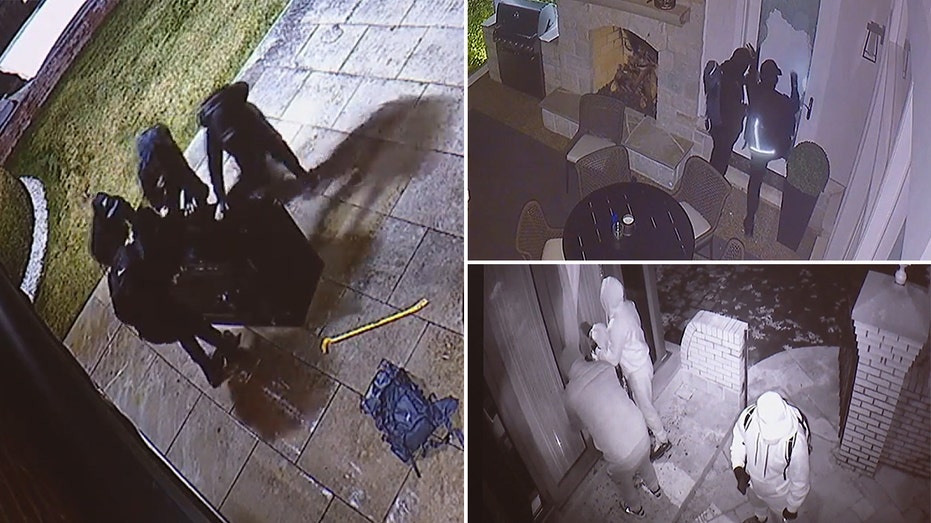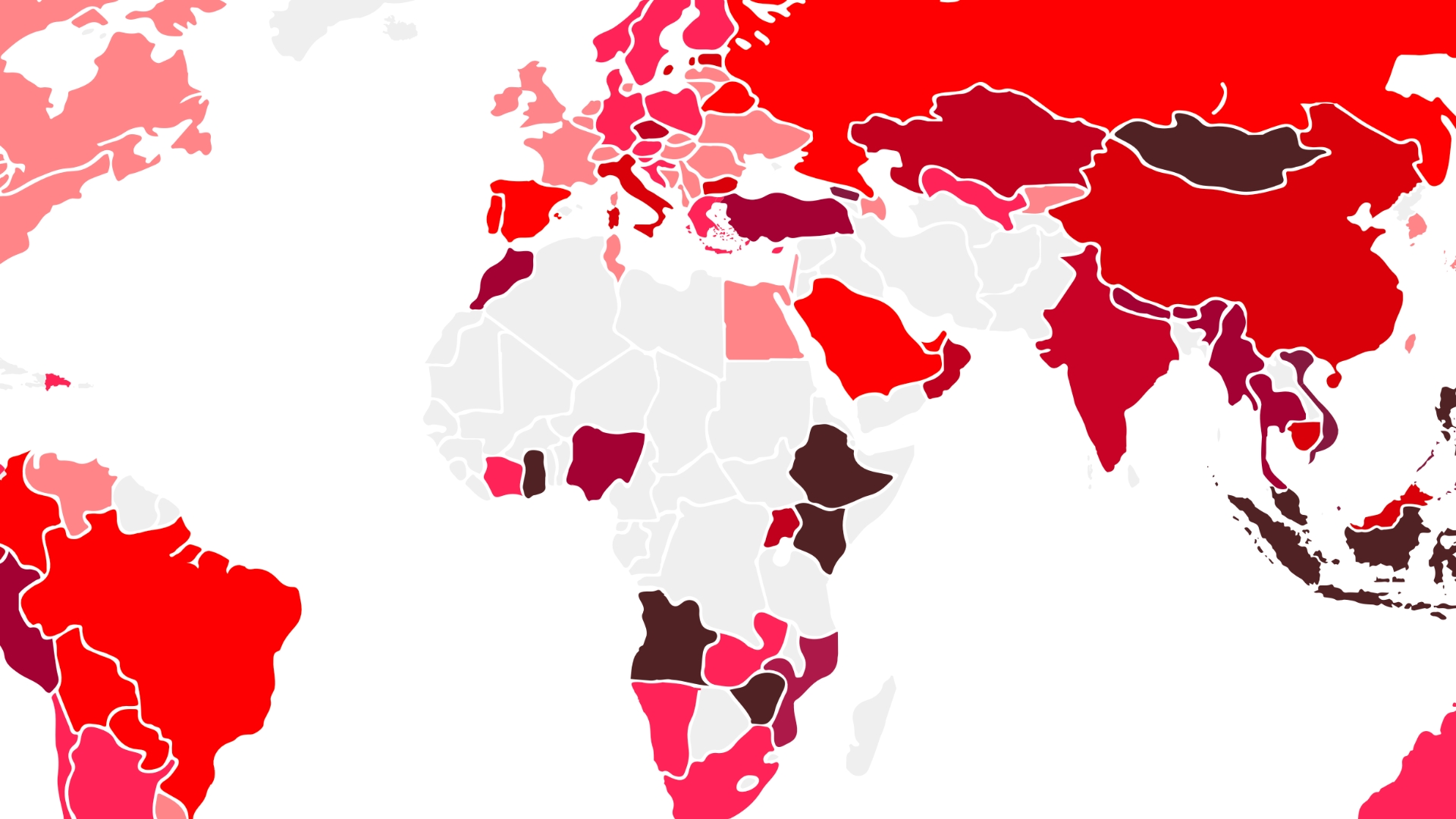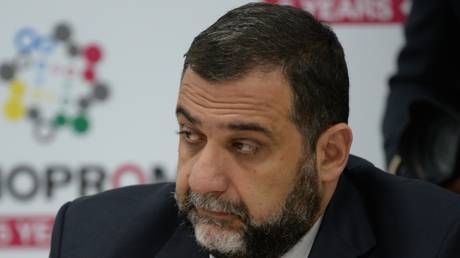Tulsi Gabbard Refused to Back Down on Edward Snowden. It Could Tank Her Nomination.
Facing more than a dozen questions about her views on the NSA leaker, Gabbard held her ground at her DNI confirmation hearing. The post Tulsi Gabbard Refused to Back Down on Edward Snowden. It Could Tank Her Nomination. appeared first on The Intercept.

Hours before Tulsi Gabbard appeared for a combative hearing on her nomination as director of national intelligence on Thursday, NSA whistleblower Edward Snowden gave some public advice to the woman who once pushed for his pardon.
“Tulsi Gabbard will be required to disown all prior support for whistleblowers as a condition of confirmation today. I encourage her to do so. Tell them I harmed national security and the sweet, soft feelings of staff. In D.C., that’s what passes for the pledge of allegiance,” Snowden said on X.
Even after facing more than a dozen questions about Snowden, however, Gabbard refused to back down.
Instead, Gabbard told the Senate Intelligence Committee that Snowden broke the law and that she would no longer push for his pardon — but that he had revealed blatant violations of the Constitution.
“The fact is he also, even as he broke the law, released information that exposed egregious illegal and unconstitutional programs happening within our government that led to serious reforms that Congress undertook,” Gabbard said.
Gabbard has shifted many positions over the years, but her refusal to disavow Snowden may have endangered an already shaky confirmation. Senators from both parties expressed concerns on her stances on issues as varied as Snowden, NSA spying law, her criticisms of Ukraine and NATO after Russia’s invasion, and her skepticism that former Syrian dictator Bashar al-Assad oversaw gruesome chemical weapons attacks on his own people.
Intelligence Committee members were preparing to enter a closed session for further questioning of Gabbard on Thursday. Chair Tom Cotton, R-Ark., said he hoped to schedule a confirmation vote “as soon as possible.”
If Thursday’s questioning was any indication, the vote could hinge on Gabbard’s position on Snowden.
As a Democratic U.S. representative, Gabbard in 2020 co-sponsored a resolution with then-Rep. Matt Gaetz, R-Fla., calling on the Justice Department to drop all charges against Snowden. In interviews, she called for a full-pledged pardon of a man she said had acted in the “public interest.”
It was the kind of break with the intelligence community consensus in Washington, D.C., that endeared her to Trump, whom she endorsed during the election last year before announcing that she had switched to the Republican Party.
It did not, however, endear her to members of the Intelligence Committee who have cast Snowden as a Russian asset. At least seven members of the committee, which is stacked with surveillance hawks, asked Gabbard hostile questions about Snowden.
“Is Edward Snowden a traitor to the United States of America? That is not a hard question to answer when the stakes are this high.”
Sen. Michael Bennet, D-Colo., asked Gabbard the same question three times, the last time his voice rising to a shout: “Was Edward Snowden a traitor to the United States of America?”
Gabbard said that Snowden “broke the law” — but declined to give a yes or no response.
“Is Edward Snowden a traitor to the United States of America? That is not a hard question to answer when the stakes are this high,” Bennet shot back.
Gabbard told several senators that she was focused on the future and hoped to prevent future leaks with a four-point plan: making sure there are no more illegal intelligence-gathering programs, publicizing existing channels for intelligence agency whistleblowers, limiting access to classified information through security clearance reform, and giving would-be whistleblowers a “direct line to me.”
Gabbard cannot afford to lose a single Republican in the committee for a positive referral and only three in the full Senate. Several suggested Thursday that they remained concerned about her position on Snowden.
Sen. James Lankford, R-Okla., said intelligence agency staffers were concerned about Gabbard’s position on Snowden.
“They don’t see him as brave. They see him as a traitor,” Lankford said. “They want to hear that you also believe the same — that not just that he broke the law, but that he’s a traitor, because they don’t want that to ever happen again.”
At one point Sen. Todd Young, R-Ind., even waived a printout of Snowden’s post on X in the air, seemingly daring Gabbard to follow his advice. The substance of her answer to him did not change, however.
Elsewhere during the hearing, Gabbard was asked repeatedly about her position on Section 702 of the Foreign Intelligence Surveillance Act, which allows the FBI to search through intelligence the NSA collects while ostensibly targeting foreigners.
Privacy advocates say the law effectively creates a backdoor for the FBI to scoop up information by and about Americans, many of whose communications are caught up in collection directed abroad.
Under questioning from Sen. Ron Wyden, D-Ore., Gabbard said she supported adding a warrant requirement to the legislation that would force the FBI to receive court approval for such searches.
However, she struck a more equivocal tone in response to another question on the topic from Sen. John Cornyn, R-Texas.
“There are many different ways to do this. The devil is in the details,” Gabbard said.
The post Tulsi Gabbard Refused to Back Down on Edward Snowden. It Could Tank Her Nomination. appeared first on The Intercept.












































































